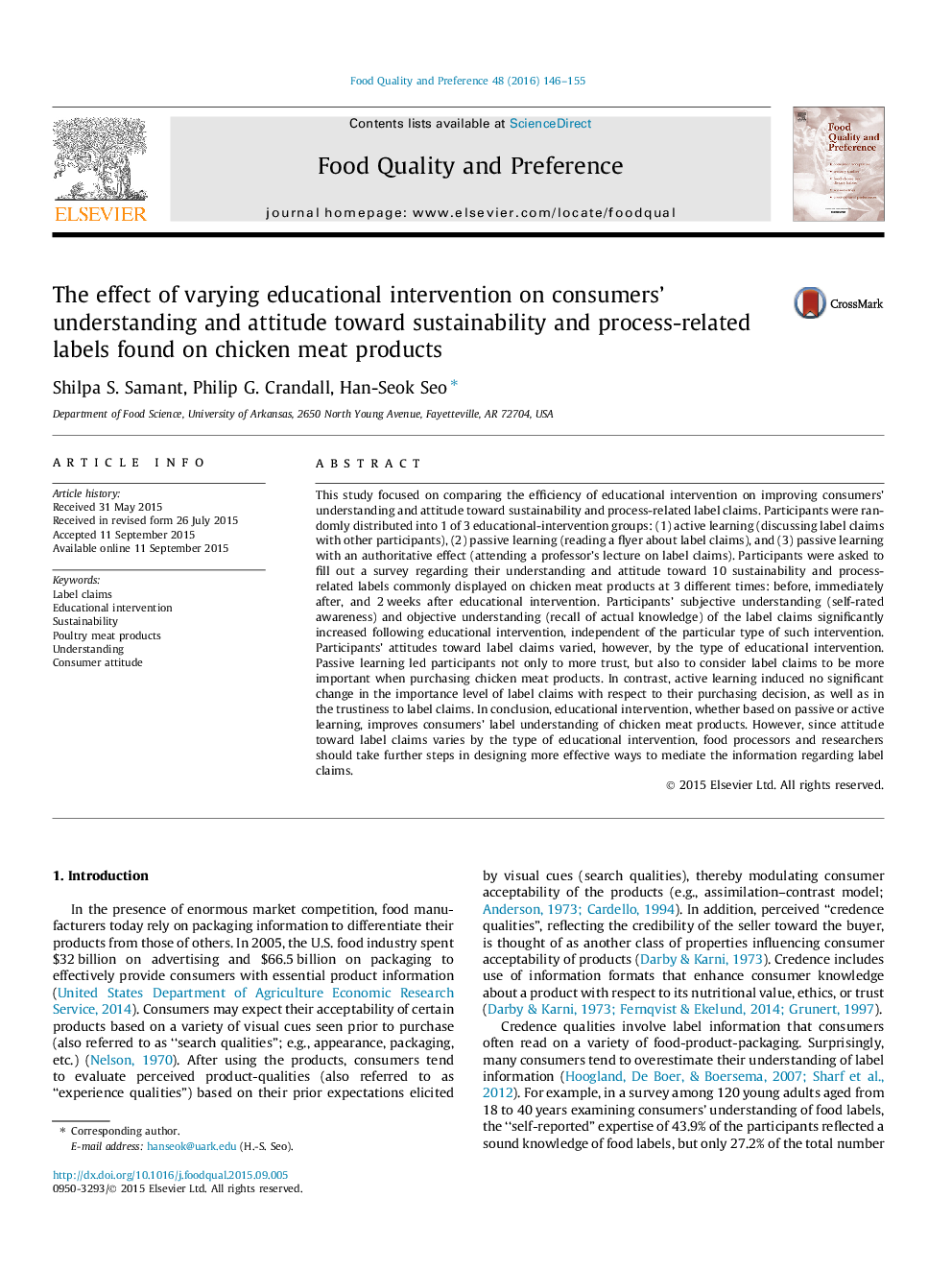| Article ID | Journal | Published Year | Pages | File Type |
|---|---|---|---|---|
| 6261192 | Food Quality and Preference | 2016 | 10 Pages |
â¢Educational intervention improved label understanding of chicken meat products.â¢Educational intervention-induced attitude toward labels varied by approach method.â¢Passive learning is more efficient and trustworthy than active learning as an educational intervention.
This study focused on comparing the efficiency of educational intervention on improving consumers' understanding and attitude toward sustainability and process-related label claims. Participants were randomly distributed into 1 of 3 educational-intervention groups: (1) active learning (discussing label claims with other participants), (2) passive learning (reading a flyer about label claims), and (3) passive learning with an authoritative effect (attending a professor's lecture on label claims). Participants were asked to fill out a survey regarding their understanding and attitude toward 10 sustainability and process-related labels commonly displayed on chicken meat products at 3 different times: before, immediately after, and 2Â weeks after educational intervention. Participants' subjective understanding (self-rated awareness) and objective understanding (recall of actual knowledge) of the label claims significantly increased following educational intervention, independent of the particular type of such intervention. Participants' attitudes toward label claims varied, however, by the type of educational intervention. Passive learning led participants not only to more trust, but also to consider label claims to be more important when purchasing chicken meat products. In contrast, active learning induced no significant change in the importance level of label claims with respect to their purchasing decision, as well as in the trustiness to label claims. In conclusion, educational intervention, whether based on passive or active learning, improves consumers' label understanding of chicken meat products. However, since attitude toward label claims varies by the type of educational intervention, food processors and researchers should take further steps in designing more effective ways to mediate the information regarding label claims.
